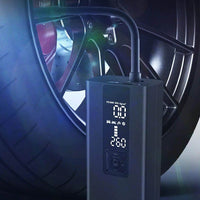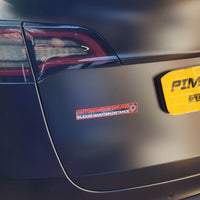Electric cars (EVs) have taken center stage as the automotive industry makes a significant transition towards sustainability and are capturing the interest of consumers worldwide. Even if consumers remain that there is no denying the advantages of electric cars, many doubts and uncertainties continue to plague prospective purchasers.
The revolution in electric vehicles (EVs) is already underway, ev owners but prospective purchasers have several reservations about this swift shift. Concerns over range, affordability, charging infrastructure, and even environmental effects persist among electric car owners despite the obvious long-term cost savings and environmental advantages. We examine and resolve the top ten issues with electric cars today in this blog article, providing insight into how the field of electric mobility is developing.
The Top Concerns for Electric Cars Today: Getting Around on the Path to Electric Mobility
Battery Degradation:
Over time, batteries lose capacity, which may affect range. However technological advances are reducing the degradation of battery capacity, and many batteries have extended warranties. Furthermore, batteries that have decayed can be used for new purposes.

Range Anxiety:
The worry that a battery will run out of power before arriving at a destination is still very common. But as infrastructure for charging EVs grows and battery technology advances, range anxiety is decreasing and EVs are now able to go farther between charges.
Charging Infrastructure:
Depending on the climate system of the region, there are many different charging possibilities. While charging at home is economical and practical, long-distance travel requires public chargers. For EV adoption to be widely adopted, a dependable and extensive, charging system and infrastructure is essential.

Upfront Cost:
Compared to gas-powered cars, electric vehicles usually have a greater upfront cost. Government subsidies and long-term fuel and maintenance savings, however, may make up for this initial outlay. Prices for secondhand electric cars are also falling down.
Maintenance and Repair:
Compared to gas-powered cars, EVs require less maintenance because they have fewer moving components. Repairs, however, could call for specific knowledge, so picking a reliable dealer with skilled specialists is crucial for reliable cars.

Cold Weather Performance:
The range and performance of EV batteries can be affected by cold weather. Nevertheless, this problem can be lessened by utilizing cold-weather tires and preconditioning the batteries. Additionally, new battery technologies are being explored to enhance cold-weather performance.

Environmental Impact:
Even though EVs have no tailpipe emissions, there are still worries about how mining for raw materials and producing batteries may affect the environment. But when compared to gas-powered and diesel cars, the total life cycle carbon footprint of electric cars is far smaller.
Safety:
Lithium-ion batteries used in electric cars are a source of concern for car owners. On the other hand, contemporary EVs are outfitted with several safety features and meet strict safety regulations. In addition, EVs are less likely to catch fire than gas-powered cars.

Availability and Selection:
Compared to gas-powered cars, there is currently a smaller selection ev models of EVs accessible. On the other hand, an increasing number of producers ev manufacturers are joining the market, providing a greater selection of choices about cost, attributes, and functionality.
Charging Speed:
It's common to think that charging an electric car takes a long time. However, new developments in charging technology, including ultra-fast chargers, are cutting down on charging times and improving EVs in general.
The dearth of Model Variety:
A perceived dearth of choice in electric car models has some consumers wary. But more and more manufacturers are getting into the EV business, providing car buyers with a wide range of choices in terms of features, size, and design.
Accessibility of Home Charging:
People without assigned parking spots might be concerned about the viability poor reliability of home charging. More solutions that serve a wider range of users are emerging, like work-based charging programs and community charging stations.
Resale Value:
Some purchasers are concerned about the unpredictability of electric automobiles' resale value. But as EVs gain popularity and demonstrate their durability, it's anticipated that their resale value will level out and approach that of traditional cars.
Increasing Use Of EVs May Affect Grid Capacity
Power Grid Capacity: As EV sales rise, questions are raised about how well-equipped power systems are to manage the extra demand. However, this problem is being addressed by developments in renewable energy and grid technology.
Grid capacity may be threatened by the growing number of electric vehicles (EVs). The need for power to charge EVs will increase as their popularity rises. Although moving toward electric vehicles is a good thing for the environment, it will require careful planning and system upgrades to handle the increased energy consumption.
To tackle this issue, we need to make wise investments in the grid's infrastructure, use smart charging stations and solutions, and harness sophisticated technology to integrate EVs smoothly without putting too much strain on the power system.
Getting Along the Way:
Though there are worries, the whole EV industry sector is quickly resolving them. Government programs, public awareness campaigns, and technological developments are making it easier to make the switch from traditional vehicles to electric vehicles. Potential buyers can confidently traverse the path to owning an electric automobile by remaining informed and considering individual demands.
Electric Vehicles are Improving, but Charging and Battery Issues Persist in Consumer Reports’ 2023 Annual Auto Reliability Survey - Consumer Reports
The 2023 Annual Auto Reliability Survey by Consumer Reports provides insight into how the market for electric vehicles (EVs) has changed past few years back. Even while electric cars are becoming more efficient overall, there are still some lingering problems with the infrastructure needed for charging and the dependability of the electric motors and batteries. The poll offers insightful information about the issues that continue to mold the market for electric cars, including customer attitudes and business trends.
In-car electronics failure
The Consumer Reports poll highlights a noteworthy worry regarding the frequency of in-car electronics malfunctions in electric vehicles. With touchscreens, sophisticated driver assistance systems, and networked features, these cars are becoming increasingly technologically sophisticated. However, dependability problems with the in-car electronics can negatively affect the overall user experience of ice vehicles. The results of the Consumer Reports survey highlight how crucial it is to fix these electrical malfunctions to improve the dependability of electric cars.
Are EV sales slower than predicted?
Although electric cars are becoming more and more popular, it's unclear if sales of EVs are reaching the initial projections. An investigation of the variables impacting the rate of adoption of electric vehicles is conducted by Consumer's Report. This analysis provides a thorough understanding of ev drivers and the market dynamics influencing the sales of electric vehicles by taking into account factors including consumer preferences, the state of the economy, and the infrastructure for charging.
EV Battery Production Is Associated With Bad Mining Practices
The Consumer Reports poll examines the environmental effects of EV charging stations, and battery production in addition to the on-road performance of electric vehicles. The relationship between the manufacture of EV batteries and possibly hazardous mining methods is investigated, providing insight into the sustainability issues facing the electric vehicle sector. It is imperative to comprehend and address these environmental issues if electric cars are to continue to gain popularity as genuinely environmentally beneficial modes of transportation.
Conclusion
Even though many people now find electric vehicles to be a feasible and appealing option, resolving issues is essential to promoting greater use. These issues are being actively addressed and resolved by the electric car industry's ongoing innovation, facilitating a more seamless transition to an electrified and sustainable future. The evolution of automotive technology is evident in the transition from the traditional internal combustion engine to the rising popularity of electric vehicles, marking a transformative era in auto testing and paving the way for a future less reliant on gasoline-powered vehicles.
 :
:  :
: 
















